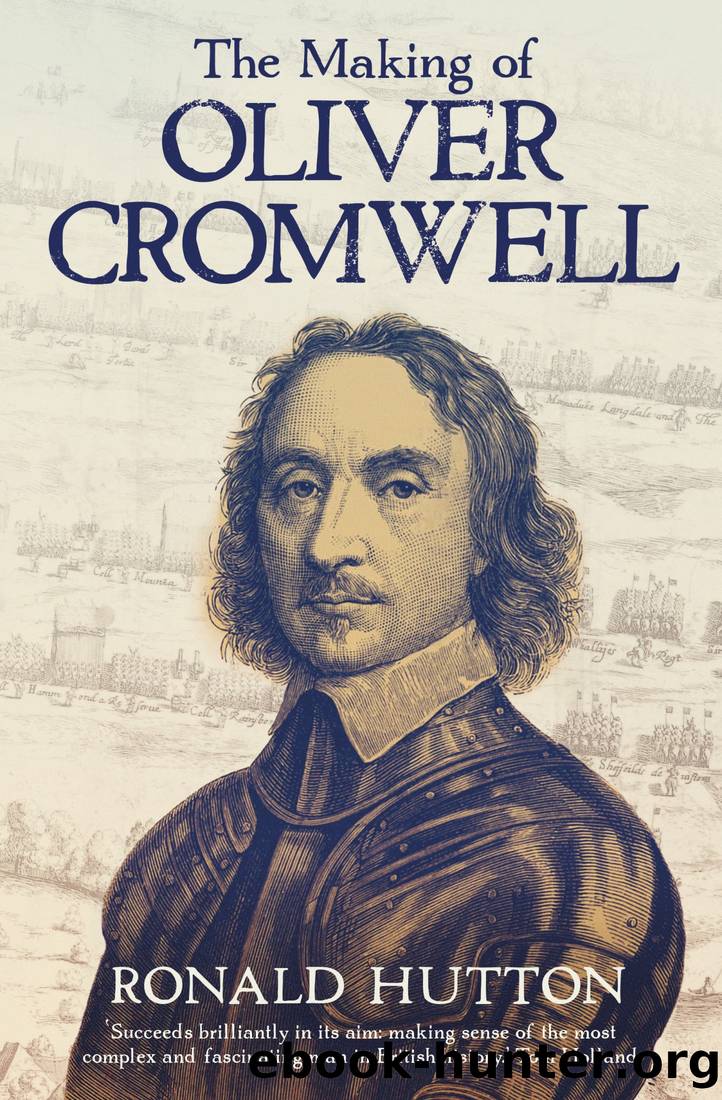The Making of Oliver Cromwell by Ronald Hutton

Author:Ronald Hutton [Hutton, Ronald]
Language: eng
Format: epub
Tags: history, Europe, Great Britain, Stuart Era (1603-1714), Biography & Autobiography, Historical, Political
ISBN: 9780300262759
Google: boM3EAAAQBAJ
Publisher: Yale University Press
Published: 2021-08-10T00:24:24.046523+00:00
5
BORROWED TIME
The mood in the capital to which the generals returned in November 1644 had a new hostility towards them. Until now, newspapers and pamphlets could on the whole be relied upon to cry up parliamentarian successes and minimize defeats; and as Cromwell knew better than most, the accomplishments of individual commanders could be eulogized beyond what seems now to have been their objective desserts. Now the opposite effect obtained, centred above all on the events of 9â10 November, when the royal army had twice challenged Parliamentâs commanders to battle and they had twice refused. There was a strong (and false) impression that those commanders had still heavily outnumbered their enemies, by at least two to one, which made their conduct seem even more pusillanimous, or even disloyal.1 Mercurius Civicus spoke of their âimprovidence and imprudenceâ.2 The Parliament Scout noted that some attributed the failure to the absence of the earl of Essex, others âthat our generals are godly but not worldly men, others speak of plot and betrayal, others Godâs judgement for our being too worldlyâ.3 A Perfect Diurnall talked darkly about a forthcoming punishment of mistakes.4 The Scottish Dove belied its name, declaring that Godâs anger had clearly been aroused by the presence of traitors or wrongdoers in the parliamentarian ranks, who needed to be rooted out.5 In his private journal, a London merchant and landowner called Thomas Juxon, who was fervent both as Puritan and parliamentarian, wrote that âGod seems not to favour the great officersâ and that âour great army is now shamefully beaten and cudgelled out of the fieldâ.6
Faced with this suspicion and hostility, the returning generals had two immediate options: to form a united front and persuade public opinion of the necessity for their actions, or to blame each other and hope that somebody else would become the scapegoat. Depending on the outcome of either tactic, there were three possible scenarios for the fighting season in 1645: that the existing system of military leadership would be vindicated and maintained; that one or two generals would be replaced and the rest retained; or that a clean sweep would be made of the lot. Cromwellâs future was prospectively in this melting pot, along with those of the rest.
Download
This site does not store any files on its server. We only index and link to content provided by other sites. Please contact the content providers to delete copyright contents if any and email us, we'll remove relevant links or contents immediately.
Machine Learning at Scale with H2O by Gregory Keys | David Whiting(4292)
Never by Ken Follett(3935)
Harry Potter and the Goblet Of Fire by J.K. Rowling(3848)
Unfinished: A Memoir by Priyanka Chopra Jonas(3379)
Fairy Tale by Stephen King(3369)
The Man Who Died Twice by Richard Osman(3070)
Will by Will Smith(2906)
Rationality by Steven Pinker(2350)
It Starts With Us (It Ends with Us #2) by Colleen Hoover(2338)
Can't Hurt Me: Master Your Mind and Defy the Odds - Clean Edition by David Goggins(2320)
The Dark Hours by Michael Connelly(2300)
The Storyteller by Dave Grohl(2227)
Friends, Lovers, and the Big Terrible Thing by Matthew Perry(2219)
The Becoming by Nora Roberts(2188)
The Dawn of Everything: A New History of Humanity by David Graeber & David Wengrow(2187)
The Stranger in the Lifeboat by Mitch Albom(2113)
Cloud Cuckoo Land by Anthony Doerr(2098)
Love on the Brain by Ali Hazelwood(2059)
Einstein: His Life and Universe by Walter Isaacson(2009)
